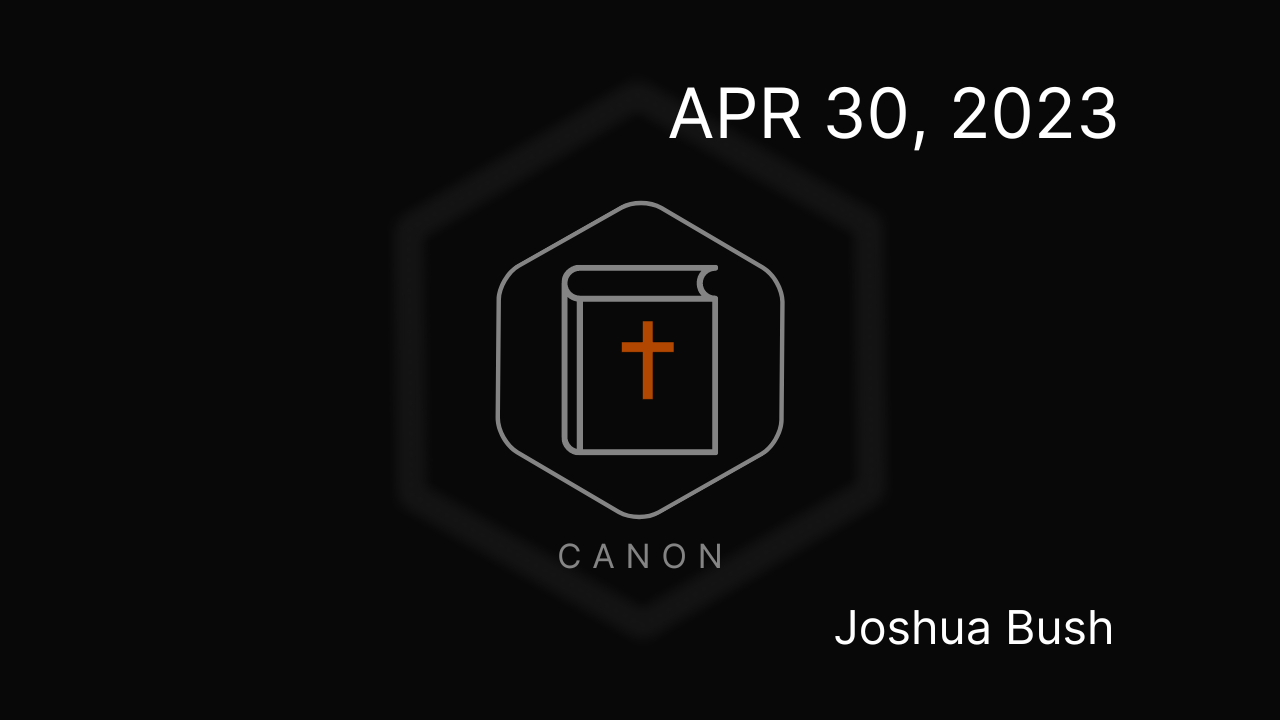How Did We Get The New Testament?

Scroll down and click play to listen along
Click "download" to check out today's handout
Main Question for today:
How did we get the New Testament in the form that we have today?
Consider this...
Who wrote the New Testament (NT)?
Who orchestrated the writing of the NT, its passage through time, and its final form?
So if the NT was written by human hands, at the divine initiative of God, how did we get our final version today? What did that process look like?
If the Bible was written by human hands, at the direction of God, does this compromise its divine nature? Why or why not?
Three things...
What criteria do you think were used to determine if a certain writing, book, letter, or document should be added to this collection of writings that would eventually become the New Testaments that we have today?
1) Apostolic Authority-- this is a question of Authorship. The author had to be a first-hand witness.
2) Conformity to the "Rule of Faith"-- Does this document agree with what Jesus taught and what the earliest followers of Jesus believed?
3) Acceptance and usage by the earliest church-- Did the earliest followers/churches accept and use this document?
2nd Century
Irenaeus
He lived and died around 180 AD/CE and references the...
4 Gospels, 13 letters of Paul, Acts, 1 Peter, 1-2 John, and Revelation, AND the Shepherd of Hermas as being Scripture.
Justin Martyr
Died around 165 AD/CE and he mentions the...
"Memoirs of the Apostles," and quotes from the 4 Gospels, Hebrews, the letters of Paul, 1 Peter, and Acts.
What do you notice about these lists of "Scripture" according to these two Christian defenders?
During the earliest years of Christianity, the Scriptures of the New Testament were fluid.
Was fluidity a problem for the early church? Why or why not?
Is fluidity of scripture a problem for us today? Why or why not?
Check out the canon lists provided above in the "download" button and follow along as you listen.
3rd-4th Centuries
Origen
Died in 254 AD/CE
He categorized Scripture into three categories:
1) Undisputed: 4 Gospels, 13 Pauline Letters, 1 Peter, 1 John, Acts, Revelation
2) Disputed: 2 Peter, 2-3 John, Hebrews, James, Jude
3) Spurious ("False"): Gospel of Thomas, Gospel of the Egyptians, and other writings not found in the Protestant canon
Eusebius
Lived around the early 4th century
He categorized Scripture into four categories:
1) Accepted: 4 Gospels, Acts, 13 Pauline Letters, Hebrews, 1 John, 1 Peter
2) Disputed which includes "Known and Accepted" and "Spurious but not Foul or Impious"
3) Known and Accepted: James, Jude, 2 Peter, 2-3 John, Revelation
4) Spurious but not Foul or Impious: Acts of Paul, Shepherd of Hermas, Apoc. of Peter, Letter to Barnabas, the Didache, and Revelation
4th Century
Athanasius
He was the first person to record the 27 books of the New Testament and ONLY the 27 books of the New Testament in a sort of canon list.
Athanasius argued that Revelation was still debated and Hebrews was included for the purposes of inclusivity between the Eastern and Western churches.
Look back to the Handout and listen as you follow along.
Consider this...
By the 4th Century, most of what we, as protestants, consider canon, was established.
It's clear that the Bible in its earliest form was very fluid. But that is ok. God used the process of human creativity and authorship, to create a collection of writings that he inspired. He wanted us to know the story of him and Jesus Christ, and the Early church, and he chose to tell us using a method that was real, tangible and included humanity in its creation
So, it’s ok that there was fluidity in the formation of the Canon. That just means that God was gracious enough to include us humans into the creation of his Holy Word. That’s AMAZING! The fact that he chose to create a collection of texts that reveals Him to us, and allowed us to be a part of that is astounding.
This goes to show you that God is not some far-off deity or one who is “too holy to associate with His creation.” We got to play a part in the grand scheme of God’s design, even though it was complex. Because what we have today IS God’s word in the form that he wants us to have it.
Take away
What stands out to you in all of this?
Does the fluidity of the formation of the Protestant Canon bother you? Why or why not?
How does this help us move away from the "golden tablet from the sky," mentality of how Scripture came to us in its final form?
How will you look at Scripture differently now?
Check out The Bible Project at Bibleproject.com to find a large collection of resources that talk about things like today's topic and others.
